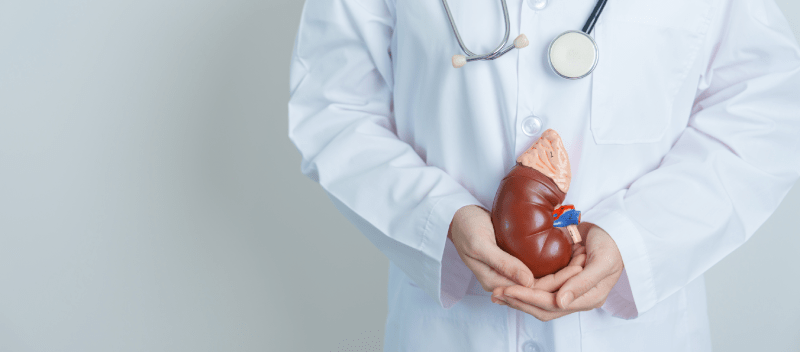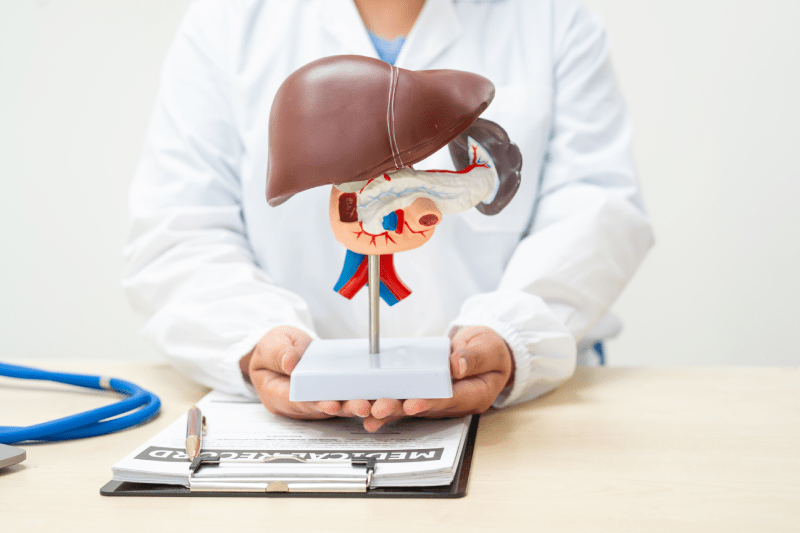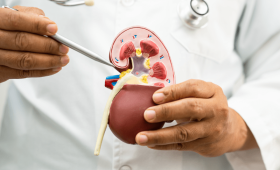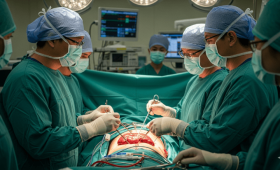What is the Cost of Liver Transplant Surgery in Turkey?
The cost of liver transplant surgery in Turkey varies depending on many factors. Prices differ according to the quality of the hospital where the operation will be performed, the experience of the surgical team, the complexity of the patient’s health condition, and the post-transplant follow-up process. Thanks to the lower general cost of living and a favorable exchange rate compared to Western countries, the costs in Turkey are at a much more affordable level. However, to get a definitive price, it is best to contact the relevant hospital or transplant center directly.
Why is Liver Transplant So Expensive?
Liver transplantation is a very complex surgical procedure that requires specialized medical equipment and expertise. The cost of the surgery covers not only the surgical operation itself but also the comprehensive pre- and post-operative process. This process includes detailed tests for both the patient and the donor, the fees of the surgical team (surgeons, anesthesiologists, nurses), the cost of the special operating room, post-operative intensive care and hospital stay, necessary medications, and long-term follow-up. When all these items are combined, the cost of the operation reaches high levels.
What is Included in the Prices?
Liver transplant centers in Turkey often offer “all-inclusive” packages for international patients. These packages may include the surgery fee, the duration of the hospital stay (intensive care and normal ward), all necessary tests, medications, surgical materials, and regular check-ups within the first year. Some centers also offer additional services such as accommodation and airport transfers for the patient and their relatives. These packages aim to ensure that patients manage their travel and treatment processes smoothly.
Who is the Most Suitable Candidate for a Liver Transplant?
The most suitable candidate for a liver transplant is a patient in the final stage of liver disease, where the condition seriously affects their quality of life. The candidate’s general health must be at a level that can withstand the surgery and the medications to be used afterward. In addition, it is important that the patient does not have conditions such as alcohol or drug addiction and is willing to follow the doctor’s instructions. The transplant team meticulously evaluates the candidate patients.
What is the Cost Difference Between Live Donor and Cadaveric Transplants?
There is a cost difference between a liver transplant from a live donor and a cadaveric donor. In a live donor transplant, two separate surgical teams, separate operating rooms, and a longer hospital stay are required for both the patient and the donor. This can lead to a higher cost. In a cadaveric transplant, the surgical process is planned only for the patient. However, since cadaveric organ waiting lists can be long in Turkey, live donor transplants are more common, and costs can be determined more clearly.
How Long Does the Post-operative Recovery Process Take?
The post-operative recovery process after a liver transplant varies depending on the patient’s general health and the complexity of the operation. Patients generally stay in intensive care for the first few days, followed by a regular ward. The full recovery and return to normal life can take 6-12 months. Regular check-ups and the use of immunosuppressive drugs are of great importance during this process.
What is the Success Rate of the Surgery?
The success of a liver transplant depends on the surgeon’s experience, the patient’s general health, and their commitment to the post-transplant follow-up process. Transplant centers in Turkey have success rates that meet international standards. The success rate in the first year after the surgery is usually around 85-90%. Long-term success rates require continuous follow-up based on the patient’s lifestyle and medication use.
What Tests are Performed Before the Surgery?
Before a liver transplant, comprehensive tests are performed for both the patient and the donor. These tests include blood tests, ultrasound, tomography (CT), magnetic resonance (MR), and other organ function tests. The goal is to determine whether the patient is suitable for the transplant and whether the donor can safely donate a part of their liver. These tests are vital for minimizing the risks of the surgery.

How Long Should I Stay in Turkey for the Surgery?
You may generally need to stay in Turkey for 1 to 3 months for a liver transplant. This period covers both pre-operative preparation and donor evaluation, as well as post-operative hospital stay and early check-ups. Your surgeon will plan this process in detail according to your health condition.
What is the Level of Pain After the Surgery?
Post-operative pain can be intense, especially in the first few days. However, this pain can be effectively controlled with modern painkillers. Your pain will be regularly monitored during your hospital stay, and medication doses will be adjusted if needed. The decrease in pain during the post-operative period indicates that the recovery process is proceeding normally.
Why are Post-operative Medications Important?
After a liver transplant, immunosuppressive drugs must be used for life. These drugs are used to prevent the body from perceiving the transplanted liver as a foreign organ and rejecting it. The regular and correct use of medications is vital for the success of the transplant and for the patient to live a healthy life.
What are the Additional Services for Patients from Abroad?
Transplant centers in Turkey offer comprehensive additional services for international patients. These services include airport transfers, accommodation arrangements, interpreting services, visa consultancy, and follow-up on post-operative check-ups. These services ensure that patients feel safer and more comfortable in a foreign country.
Why is Hospital Selection Important for the Surgery?
Hospital selection is critically important for a complex operation like a liver transplant. Choosing hospitals with international accreditations such as JCI indicates that the clinic’s service quality and hygiene standards are at an international level. In addition, choosing a hospital with a surgical team specialized in liver transplantation and with high success rates directly affects the success of the surgery.
What is the Patient’s Role in the Success of the Surgery?
The patient’s role in the success of a liver transplant is very large. Strictly following the surgeon’s instructions, taking medications regularly, adopting a healthy lifestyle, and going for regular check-ups ensure the success of the transplant and the longevity of the liver. The patient’s motivation and commitment to the recovery process determine the quality of the final outcome.
When Can I Go Back to Work After the Surgery?
The process of returning to work after a liver transplant varies depending on the patient’s general health and the nature of their job. Generally, it is recommended to return to work for jobs requiring light physical activity after 2-3 months, and for jobs requiring heavy physical activity after 6 months. Your surgeon and transplant coordinator will plan your return to work with you.
Are There Risks of Complications After the Surgery?
As with any surgical operation, there are some risks associated with a liver transplant. These risks include infection, bleeding, bile duct or vascular problems, and organ rejection. However, thanks to modern medical technology and experienced surgical teams, these risks have been minimized. Regular post-transplant check-ups ensure that possible complications are detected early.
What Happens if a Necessary Organ is Not Found in Turkey?
In Turkey, the priority for liver transplantation is from a living donor. If there is no living donor, the patient is placed on the cadaveric organ waiting list. However, this list can be quite long, and international patients cannot be prioritized on this list. For this reason, finding a living donor is the most frequently preferred and fastest method for international patients.
What is the Long-Term Impact of the Surgery on Quality of Life?
A liver transplant significantly improves the quality of life for patients with end-stage liver disease. As a result of a successful transplant, patients can perform their daily activities without pain and fatigue, their sleep quality improves, and they can return to social life more easily. In the long term, this operation extends the patient’s life and positively affects their overall well-being.
Is There an Age Limit for a Liver Transplant?
Although there is no definitive age limit for a liver transplant, the risk of surgery and the recovery process can be more challenging for elderly patients. The decision for surgery is determined by the transplant team based on factors such as the patient’s general health, chronic diseases, and life expectancy.
What Should the Diet Be Like After a Transplant?
Post-transplant nutrition is vital for recovery and for the new liver to stay healthy. Patients should avoid fatty and salty foods and follow a balanced diet rich in protein and vitamins. Alcohol consumption must be completely avoided. The transplant team will prepare a special nutrition plan for you.
When Can I Start Physical Activity?
Physical activity after a transplant is an important part of the recovery process. Light walks can be started a few weeks after the surgery. For more strenuous sports and muscle-building exercises, it may be necessary to wait 6-12 months. Your surgeon will give you detailed information about when you can start which activities.
What is the Most Suitable Season for the Surgery?
There is no seasonal restriction for a liver transplant. The surgery can be performed in any season. However, because the immune system is suppressed, the patient becomes more vulnerable to infections. For this reason, it is important to stay away from crowded places and sick people in the winter months.
What is the Legal Situation?
In Turkey, liver transplantation is performed in accordance with legal and ethical rules. For a live donor transplant, the donor must be over 18 years old, and the transplant must be based on voluntarism. The donor must be within a legally defined kinship relationship or obtain ethical committee approval. All these processes are inspected by the Ministry of Health.
How are Post-operative Check-ups Done?
In the first few months after the transplant, check-ups are performed more frequently. Afterward, the frequency of check-ups is adjusted according to the patient’s condition. The function of the new liver and possible complications are monitored with blood tests, ultrasound, and physical examinations. For patients coming from abroad, some check-ups can also be done through doctors in their home country.
What is the Impact of Liver Transplant on Quality of Life?
A liver transplant eliminates the symptoms caused by chronic liver disease (fatigue, weakness, jaundice, etc.). A successful transplant allows the patient to return to a normal life and resume their hobbies. Patients gain a much more active and healthy life after their previously restricted one.
What are the Required Documents for the Surgery?
A set of documents is requested from the patient and donor for the surgery. These documents include identity and passport information, medical history reports, test results showing current diseases, and other health documents. Visa procedures are also an important issue for international patients. The transplant center will guide you on all the necessary documents.
Is Pregnancy Possible After a Liver Transplant?
After a successful liver transplant, female patients can become pregnant. However, the pregnancy plan should be discussed with the transplant team in advance. A special follow-up plan must be created for the medications used during pregnancy and for the health of the mother and baby. It is generally recommended to wait 1-2 years after the transplant.

What Should Be Done for Long-Term Success of the Surgery?
The most important factors for long-term success are regular use of medications, a healthy diet, avoiding alcohol and cigarettes, regular physical activity, and staying in constant communication with the transplant team. It is vital to consult a doctor immediately if any signs of complications (fever, pain, fatigue) are observed.
When Can I Start Sexual Life After a Liver Transplant?
Most patients can return to their sexual life when they feel good. This period usually varies between a few weeks and a few months. It is not recommended to start sexual activity until the surgical incision has completely healed and the pain has subsided. The transplant team will provide specific advice to the patient on this matter.
Is Alcohol Consumption Possible After a Liver Transplant?
Alcohol consumption is strictly forbidden after a liver transplant. Alcohol can damage the transplanted liver and cause organ rejection. Staying away from alcohol for life is one of the most fundamental rules for the success of the transplant and the patient’s health.
What are the Dietary Restrictions After a Liver Transplant?
After a transplant, patients should avoid foods like raw meat and fish, unpasteurized dairy products, and high-fat foods. In addition, some foods like grapefruit juice can interact with the medications used. Your doctor and dietitian will prepare a special nutrition program for you.
What are the Risks of the Surgery?
Transplant surgery is a major operation and has its own risks. These include bleeding, infection, blockages in the bile ducts, organ rejection, and the new liver not functioning properly. An experienced surgical team minimizes these risks.
Is Fatigue Normal After a Liver Transplant?
It is normal to feel fatigue and weakness in the first few months after the surgery. The body’s process of healing and adapting to the new organ requires energy. Sufficient rest, a balanced diet, and light exercises help to alleviate this condition.
What are the Alternatives to Liver Transplant?
A liver transplant is the only definitive treatment for end-stage liver disease. In some diseases (e.g., autoimmune hepatitis), the progression of the disease can be slowed down with medication. However, in cases of liver failure, transplantation is the primary option.
Is it Necessary to Protect from Sunlight After a Liver Transplant?
Yes, it is important to protect from sunlight after a liver transplant. Immunosuppressive drugs can increase the risk of skin cancer. Using sunscreen, wearing a hat, and long-sleeved clothes reduces this risk.
Can I Travel After a Liver Transplant?
It is recommended to avoid long-distance travel in the first 6-12 months after the transplant. During this period, it is important to be close to the hospital for regular check-ups and emergencies. Later, with the doctor’s approval, you can travel.

